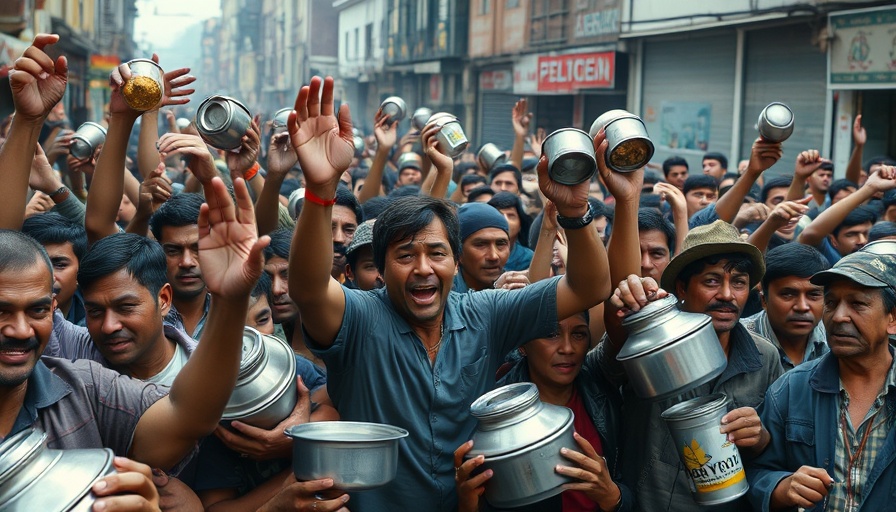
The Struggling Lives of Gazans Amid Food Crises
As reports emerge about the dire state of the food crisis in Gaza, one unsettling image stands out: families counting lentils, a poignant representation of the overwhelming scarcity of resources. These widespread shortages stem from the ongoing Israeli blockade, further exacerbated by economic deterioration in the area. Food distribution centers are overwhelmed, with individuals rushing in, hungry and desperate.
Understanding the Blockade: A Historical Context
The blockade of Gaza has become a focal point of humanitarian discussions, one that stretches back over a decade. Implemented by Israel following Hamas's rise to power, the blockade aims to restrict smuggling of weapons but has inadvertently trapped Gazan civilians in a cycle of deprivation. With limited access to food, resources, and medical supplies, the situation continues to worsen, leaving families to scramble for basic nutrition.
The Psychological Toll: Mental Health Matters
In the midst of such hardship, mental health often takes a backseat to immediate physical survival. The stress and trauma inflicted by extreme scarcity can lead to heightened anxiety and depression. Recent studies in mental health suggest that prolonged exposure to such crises can cause long-term psychological impacts, particularly for children growing up in these conditions. Addressing mental well-being becomes equally vital, considering the interconnectedness of physical and psychological health.
The Community Response: Resilience and Solidarity
Despite the dire circumstances, the Gazan community showcases remarkable resilience. Local NGOs and international organizations are stepping in, providing what aid they can. Yet, their capabilities are hamstrung by the blockade, as resources are consistently in short supply. Community kitchens, which become central to daily life, allow some families to share meals and support each other, fostering solidarity even amid scarcity.
Future Predictions: The Path Forward
Looking ahead, predictions indicate that unless substantial policy changes occur, the humanitarian crisis in Gaza may not only persist but worsen. Innovations in health and wellness technology may offer potential avenues for support, including remote consultations for mental health, nutritional guidance, and even community-based health initiatives. A multi-faceted approach addressing both immediate needs as well as systemic issues will be crucial for the future.
Call to Action: A Collective Responsibility
The plight of Gazans is an urgent reminder of our shared human responsibility to fight for wellness and equity. As advocates for health and community well-being, we can support organizations working to alleviate food insecurity in Gaza and make our voices heard. Whether through donations or raising awareness on social media, every action counts. Join the conversation and help push for change.
 Add Row
Add Row  Add
Add 




 Add Row
Add Row  Add
Add 

Write A Comment